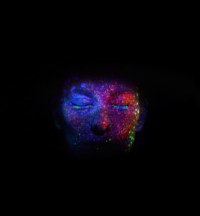 The question of whether humans are mostly their minds or their bodies has challenged thinkers for ages. No doubt, we have both a mind and a body – our physical form carrying out what appears to be the will of our mind – yet does one reign supreme over the other? Some believe that what we perceive as mind is simply an illusion emerging from the physiological processes of our neurons, and thus it is all physical, all body. Others believe that nothing exists outside of the mind, and thus to be conscious, subjective, with perceptions, and likes and dislikes, one must be something more than body. To complicate matters, some believe that neither mind nor body is the primary substance of being human, but instead an entirely different substance exists, which is the underlying essence of conscious beings.
The question of whether humans are mostly their minds or their bodies has challenged thinkers for ages. No doubt, we have both a mind and a body – our physical form carrying out what appears to be the will of our mind – yet does one reign supreme over the other? Some believe that what we perceive as mind is simply an illusion emerging from the physiological processes of our neurons, and thus it is all physical, all body. Others believe that nothing exists outside of the mind, and thus to be conscious, subjective, with perceptions, and likes and dislikes, one must be something more than body. To complicate matters, some believe that neither mind nor body is the primary substance of being human, but instead an entirely different substance exists, which is the underlying essence of conscious beings.
What we know for sure is that mind and body are inextricably linked in both perception and experience. We cannot feel pain physically without an emotional response to that pain, even if it is indifference. We cannot feel psychological stress without the physical accompaniment of increased heart rate, flush skin, and rapid breathing. Conversely, we can reverse the physical signs of stress by slowing the breath. The mind and the body seem to be working alongside one another constantly.
This seems to be one issue surrounding migraine headaches. Migraines are headaches which can present in a number of different ways depending on the individual. Some common symptoms are a throbbing, pulsating pain on the side of the head, nausea, dizziness, auras (light spots), and sensitivity to light and sound. Untreated, these symptoms may last for hours or even days; unfortunately, even with treatment, these symptoms may stick around for hours or even days. Many migraine sufferers are unable to carry out their daily activities when in the throes of headache.
 The typical treatments for migraines include medication, chiropractic, and time. I am sure many other modalities exist to treat migraines. I will not mention them here because of one simple enigma plaguing migraine sufferers: Not every treatment works for every migraine sufferer. Excedrin is a good medication for migraines. It contains caffeine which is a vasoconstrictor. One of the main mechanisms of the migraine is a dilation of blood vessels in the brain, causing what’s called a neurogenic inflammation. Excedrin, then, shrinks blood vessels, pumping away the fluids responsible for the inflammation.
The typical treatments for migraines include medication, chiropractic, and time. I am sure many other modalities exist to treat migraines. I will not mention them here because of one simple enigma plaguing migraine sufferers: Not every treatment works for every migraine sufferer. Excedrin is a good medication for migraines. It contains caffeine which is a vasoconstrictor. One of the main mechanisms of the migraine is a dilation of blood vessels in the brain, causing what’s called a neurogenic inflammation. Excedrin, then, shrinks blood vessels, pumping away the fluids responsible for the inflammation.
Chiropractic can also effective in treating migraines. I serve many migraine sufferers in my Beverly Hills, Los Angeles, and West Hollywood practice. My experience is that the sooner a migraine sufferer comes in for treatment, the greater the probability of cutting it off at the pass. In other words, at the first sign of oncoming symptoms get in to see the chiropractor right away. The bulk of my migraine clients tell me that, through minor signs (maybe symptoms), they know when a headache is oncoming, sometimes hours before it does. The signs could be visual, like an aura or sensitivity to light, or neurological, like dizziness. One client reports that her neck hurts in a particular way prior to every migraine. Whatever signs you may feel just before a migraine should alert you to call a chiropractor immediately. Excedrin and chiropractic done concurrently helps a number of people in my practice.
Sometimes, I have observed, clients may not respond to either treatment alone or together. Now while it might be tempting to recommend yet another physical treatment, I think it is appropriate to discuss an observed psychological component of migraine headaches. Because of the inextricable link between the mind and body, it is sometimes difficult for people to separate things they need to solve with the brain and those they need to solve with the body. One major area that needs physical release is sexual energy. When a person gets stuck, sexually, to the level of one’s mind, then the probability of suffering a migraine increases significantly. There are two primary ways this can happen: One is by repressing sex altogether – the person who becomes unwillingly celibate – and two is by overcompensating (over-representing sexuality in the realm of mind, like fantasies without manifestation). For the celibate – whether temporary or permanent – this pent up sexual energy needs release, and without a physical outlet, the energy tries to dissipate through the head. Unwilling sexual repression usually occurs even though the desire and willingness for sexual release is there; it is just that circumstances do not permit physical expression (whether that be lack of partner, submission to anger and/or resentment, or fear). This form of sexual blockage is most common in women. Overcompensation, on the other hand, is more typically seen in men, and can include over-expressing the greatness of one’s sex life, or over-abundant fantasizing without actually doing the deed. Both types of blockages to sexual energy lead to a sort-of substitute orgasmic process which occurs in the brain – a release of fluid and energy head-ward, instead of body-ward (toward the genitalia).
The solution, of course, is easier said than done. These are habits that might be long standing or circumstances not easily overcome. If either profile I have described sounds like you, and you can actually express yourself sexually without much ado, then do so. You might find that your migraine responds beautifully to a good romp beneath the sheets. If things are not that simple, then contact me – I may be able to help. Resentment toward a spouse, anger, feelings of unattractiveness, guilt, shame, and fear are all issues on which I might be able to give you some perspective. Of course, you’d be wise to try chiropractic and Excedrin as well. But if these do not work, or the migraines come more frequently than feasible, then please contact me, and I can help bring your mind and body back to balance.

